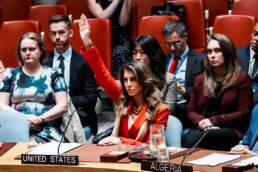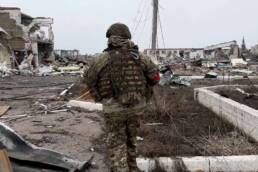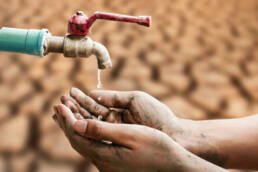المصادر:
(*) نُشرت هذه الدراسة في مجلة المستقبل العربي العدد 431.
الأحمر، المولدي. الجذور الاجتماعية للدولة الحديثة في ليبيا: الفرد والمجموعة والبناء الزعامي للظاهرة السياسية. بيروت: مركز دراسات الوحدة العربية، 2009. (سلسلة أطروحات الدكتوراه؛ 78)
التير، مصطفى عمر. أسئلة الحداثة وتحديات الانتقال الديمقراطي في ليبيا: المهمة العصية. بيروت: منتدى المعارف، 2013.
الصواني، يوسف محمد. «انتفاضة 17 شباط/فبراير في ليبيا: إسقاط النظام وقضايا بناء الدولة.» في: يوسف الصواني وريكاردو لاريمونت (محرّران). الربيع العربي: الانتفاضة والإصلاح والثورة. بيروت: منتدى المعارف، 2013.
عثمان، السيد عوض. العلاقات الأمريكية الليبية (1940 – 1992). القاهرة: مركز الحضارة العربية للإعلام والنشر، 1994.
علي عبد اللطيف، احميدة. «دولة ما بعد الاستعمار والتحولات الاجتماعية في ليبيا.» المركز العربي للأبحاث ودراسات السياسات (الدوحة): 29 أيار/مايو 2012، <http://www.dohainstitute.org/release/855d9fce-20fd-44d5-b0ba-4c4ee85b6925>.
عميش، إبراهيم فتحي. التاريخ السياسي ومستقبل المجتمع المدني في ليبيا: الجزء الأول. بنغازي: برنيق للطباعة والترجمة والنشر، 2008.
Barrie, Douglas. «Libya’s Lessons: The Air Campaign.» Survival: Global Politics and Strategy: vol. 54, no. 6, 2012.
Boyle, Francis A. Destroying Libya and World Order: The Three-Decade U.S. Campaign to Terminate the Qaddafi Revolution. Atlanta: Clarity Press, 2013.
Capasso, Matteo. «Understanding Libya’s «Revolution» through Transformation of the Jamahiriyya into a State of Exception.» Middle East Critique: vol. 22, no. 2, 2013.
Hendrickson, Ryan C., «Libya and American War Powers: War Making Decisions in the United States.» Global Change, Peace and Security: vol. 25, no. 2, 2013.
Parshad, Vijay. Arab Spring: Libyan Winter. Edinburgh, Oakland, Baltimore, MD: AK Press, 2012.
Sawani, Youssef, «Dynamics of Continuity and Change.» in: Jason Pack (ed.). The 2011 Libyan Uprisings and the Struggle for the Post-Qadhafi Future. New York: Palgrave Macmillan, 2013.
Vandewalle, Dirk (ed). Libya Since 1969: Qadhafi’s Revolution Revisited. New York: Palgrave Macmillan, 2008.
(**) يوسف محمد الصواني: أستاذ السياسة والعلاقات الدولية، جامعة طرابلس – ليبيا.
البريد الإلكتروني: youssef.sawani@gmail.com.
[1] Douglas Little, «On the History of Relations: To the Shores of Tripoli: America, Qaddafi, and Libyan Revolution, 1969-1989,» The International History Review, vol. 35, no. 1 (2013), pp. 70-99.
[2] Ronald Bruce St. John, Libya and the Unites States: Two Centuries of Strife (Pennsylvania: Pennsylvania University Press, 2002), pp. 87-151.
[3] مصطفى عمر التير، صراع الخيمة والقصر: رؤية نقدية للمشروع الحداثي الليبي (بيروت: منتدى المعارف، 2014)، ص 163.
[4] «Libya,» eia (25 November 2014), <http://www.eia.gov/countries/cab.cfm?fips=ly>.
[5] Jason Pack, «Libya is Too Big to Fail: International Intervention is the Right Move — and Not Just for Humanitarian Reasons,» Foreign Policy, 18/3/2014, <http://www.foreignpolicy.com/articles/2011/03/18/libya_is_too_big_to_fail>.
[6] Tripoli Post, no. 171.
[7] التير، صراع الخيمة والقصر: رؤية نقدية للمشروع الحداثي الليبي، ص 147-148.
[8] David Hirst, «Colonel Muammar Gaddafi obituary,» The Guardian, 20/10/2011, <http://www.theguardian.com/world/2011/oct/20/colonel-muammar-gaddafi>.
[9] Yahia H. Zoubir, «Libya in US Foreign Policy: From Rogue State to Good Fellow?,» Third World Quarterly, vol. 23, no. 1 (2002), pp. 46-84.
[10] Jon B. Alterman, «Libya and the U.S.: The Unique Libyan Case,» Middle East Quarterly, vol. 13, no. 1 (Winter 2006), <http://www.meforum.org/886/libya-and-the-us-the-unique-libyan-case>.
[11] المصدر نفسه.
[12] يوسف الصواني، ليبيا: الثورة وتحديات بناء الدولة ( بيروت: مركز دراسات الوحدة العربية، 2013)، ص 10-17.
[13] Yahia H. Zoubir, «The United States and Libya: The Limits of Coercive Diplomacy,» The Journal of North African Studies, vol. 16, no. 2 (June 2011), pp. 278-291.
[14] «President Obama’s Speech in Cairo: A New Beginning,» White House, <http://www.whitehouse.gov/blog/newbeginning/transcripts>.
[15] Renee Parsons, «The Regime Changers: From Libya to Ukraine,» Counter Punch (27 March 2014), <http://www.counterpunch.org/2014/03/27/from-libya-to-ukraine/>.
[16] انظر: Max Fisher, «Libyans Now Like America Slightly More Than Do Canadians,» The Atlantic (13 August 2012), <http://www.theatlantic.com/international/archive/2012/08/libyans-now-like-america-slightly-more-than-do-canadians/261078/>.
[17] انظر عرضاً لنتائج استطلاعات الرأي العام العربي نحو الولايات المتحدة في: يوسف الصواني، اتجاهات الرأي العام العربي نحو الديمقراطية: تحليل نتائج الدراسة الميدانية، وقفية جاسم القطامي للديمقراطية وحقوق الإنسان (بيروت: مركز دراسات الوحدة العربية، 2014)، ص 162-163.
[18] Hugh L. Atkinson, «Strategic Implications of U.S. Military Action in Libya,» International Affairs, vol. 15, no. 3 (December 20012), <http://www.faoa.org/resources/documents/pub%2050%20-%20final%20-%2013%20dec%2012_online%20edition.pdf>.
[19] منذ حدوث الانفراج في علاقات ليبيا مع الغرب عام 2003، سارعت الشركات الغربية والأمريكية بالعودة إلى ليبيا وإبرام الصفقات مع نظام القذافي، بل إن رؤساء دول وحكومات الغرب سعوا لمساعدة شركاتهم مثل Repsol, Wintershall, Total, Eni, OMV, Shell, The Oasis Group, Chevron, Marathon, ExxonMobil, and BP.
كما كانت أوّل اتفاقات عَقَدَها المجلس الوطني الانتقالي في 2011 نفطية مع دول غربية.
[20] حول المصالح النفطية للدول الغربية في ليبيا، انظر: Richard Rousseau, «Libya: A Very Long War Over Competing Energy Interests,» Foreign Policy Journal, 19/11/2012, <http://www.foreignpolicyjournal.com/2011/11/19/libya-a-very-long-war-over-competing-energy-interests/>.
[21] «القذافي يستقبل قائد القيادة الأميركية في إفريقيا،» الوسط (البحرين)، 23/5/2009، <http://www.alwasatnews.com/2451/news/read/53873/1.html>.
[22] «Sustaining U.S. Global Leadership: Priorities for 21st Century Defense,» U.S. Department of Defense (January 2012), <http://www.defense.gov/news/defense_strategic_guidance.pdf>.
[23] Sam Raphael and Doug Stokes, «Globalizing West African Oil: US «Energy Security» and the Global Economy,» International Affairs, vol. 84, no. 4 (2011), <http://www.researchgate.net/publication/227720229_globalizing_west_african_oil_us_energy_security_and_the_global_economy>.
[24] Jacob Stokes, «After the Awakening Future Security Trends in the Middle East,» <http://www.cnas.org/sites/default/files/publications-pdf/CNAS_MiddleEastMegatrends_stokes.pdf> (Accessed 26 May 2014).
[25] «Browse by Embassy Tripoli,» Wiki-Leaks, <http://wikileaks.org/origin/37_0.html>, and Gee Caleb, «In Syria, as in Libya, the United States is not on the Peoples’ Side,» U. S. Hypocrisy (9 September 2013), <http://ushypocrisy.com/2013/09/09/in-syria-as-in-libya-the-united-states-is-not-on-the-peoples-side/>.
[26] «Viewing Cable 09tripoli71, Al-Qadhafi’s Feint: Libyan Oil Nationalization Unlikely,» Wikileaks, <http://wikileaks.org/cable/2009/01/09tripoli71.html>.
[27] Brian Becker, «Why the NATO Powers are Trying to Assassinate Muammar Gaddafi: Protecting Civilians or Western Oil Companies?,» Liberations (13 June 2011), <http://www.pslweb.org/liberationnews/news/why-the-nato-powers-want-to-assassinate-gaddafi.html>.
[28] انظر ملاحظات الرئيس أوباما بشأن ليبيا في 19 آذار/مارس 2011، في: «Remarks by the President on Libya,» White House (19 March 2011), <http://www.whitehouse.gov/the-press-office/2011/03/19/remarks-president-libya>.
[29] «President Obama’s Speech on Libya,» White House (28 March 2011), <http://www.whitehouse.gov/photos-and-video/video/2011/03/28/president-obama-s-speech-libya>.
[30] Shadi Hamid and Peter Mandaville, «Bringing the United States Back into the Middle East,» Washington Quarterly, vol. 36, no. 4 (Fall 2013), <http://csis.org/files/publication/twq_13winter_hamid-mandaville.pdf>.
[31] Jack Holland and Mike Aaronson, «Dominance through Coercion: Strategic Rhetorical Balancing and the Tactics of Justification in Afghanistan and Libya,» Journal of Intervention and State-building, vol. 8, no. 1 (2014), <http://www.tandfonline.com/doi/abs/10.1080/17502977.2013.856126#.uzaaum4sbrc>.
[32] Parsons, «The Regime Changers: From Libya to Ukraine».
[33] Alan Kuperman, «Lessons from Libya: How Not to Intervene,» Belfer Center (September 2013), <http://belfercenter.ksg.harvard.edu/publication/23387/lessons_from_libya.html>.
[34] المصدر نفسه.
[35] Florence Gaub, «A Libyan Recipe for Disaster,» Survival: Global Politics and Strategy, vol. 56, no. 1 (2014), p. 101.
[36] Robert Kaplan, «Libya, Obama and the Triumph of Realism,» Financial Times, 28/8/2011, <http://www.ft.com/cms/s/0/a76d2ab4-cf2d-11e0-b6d4-00144feabdc0.html>.
[37] Richard Haass, «The US Should Keep Out of Libya,» The Wall Street Journal, 8/3/2011, <http://online.wsj.com/news/articles/SB10001424052748703386704576186371889744638>.
[38] «فرنسا: جنوب ليبيا تحول إلى «وكر أفاع» للمتشددين الإسلاميين،» رويترز (7 نيسان/أبريل 2014)، <http://ara.reuters.com/article/topNews/idARACAEA3608T20140407>.
[39] محمود أحمد أبوصوة، «حتى لا تتحول ثورة 17 فبراير إلى انقلاب،» <http://libya_al-mostakbal.org/news/clicked/34814>.
[40] Maggie Michael, «Libya’s Guns Free-for-All Fuels Region’s Turmoil,» Associated Press (22 March 2014), <http://bigstory.ap.org/article/libyas-guns-free-all-fuels-regions-turmoil>.
[41] انظر تقرير لجنة خبراء الأمم المتحدة عن السلاح وانتشاره من ليبيا إقليمياً في: «Note by the President of the Security Council,» United State, Security Council (19 February 2014), <http://www.securitycouncilreport.org/atf/cf/%7b65bfcf9b-6d27-4e9c-8cd3-cf6e4ff96ff9%7d/s_2014_106.pdf>.
بدعمكم نستمر
إدعم مركز دراسات الوحدة العربية
ينتظر المركز من أصدقائه وقرائه ومحبِّيه في هذه المرحلة الوقوف إلى جانبه من خلال طلب منشوراته وتسديد ثمنها بالعملة الصعبة نقداً، أو حتى تقديم بعض التبرعات النقدية لتعزيز قدرته على الصمود والاستمرار في مسيرته العلمية والبحثية المستقلة والموضوعية والملتزمة بقضايا الأرض والإنسان في مختلف أرجاء الوطن العربي.



